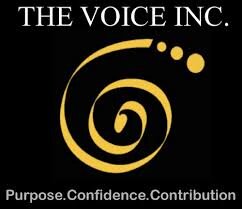CAN A YOUTH LED SOCIAL MOVEMENT IMPROVE PAPUA NEW GUINEA’S GOVERNANCE?
By Maliwai Sasingian, Executive Director, The Voice Inc. (TVI)
In 2007, The Voice Inc started at the University of Papua New Guinea (UPNG). Then in 2010 as we grew our ideas on leadership and change we launched the Clean Generation movement.
CleanGen Leader Kim Allen, launches project in Tubetube, Milne Bay.
Our journey has been an evolution, shaped by the growth and maturity of individuals who have infused their life lessons into the fabric of our group. When the Clean Generation first launched in 2010, it began as a campaign championing a purposeful, virtuous, and responsible generation, focusing on themes such as clean eating and environmental sustainability. We gathered at music festivals and promoted themes of national unity and faith. Over time, this campaign transformed into a thriving movement, uniting thousands—young and young at heart—who have embraced its vision and taken a stand for positive change.
As we near 50 years of Papua New Guinea’s (PNG) independence I’d like to reflect on the potential of this movement as a pathway to improve the life of citizens in our country.
Recently I attended a talk by Dr Terence Wood of the Australian National University/ UPNG discussing the challenge of PNG’s governance and how this affected the services and developent we experience. He described PNG governance as in a clientelism trap where because services do not improve, citizens logically seek what they can get from politicians for their community or family. In turn politicians are incentivised to provide resources directly to citizens to get elected, rather than delivering public service improvements. This cycle fosters a culture of dependency, where citizens increasingly rely on direct assistance from politicians instead of actively engaging in efforts to drive change within their communities.
To break out of this trap, he described four possible pathways, the fourth being ‘social movements’, which he noted as being present in the history of ‘just about every well- governed democracy’. Social movements can improve governance by supporting more effective political candidates into power, transform into values focused political parties, and hold politicians accountable.
One challenge to this pathway, Dr Wood believes, is that PNG has not gone through an industrial revolution from which many historical movements arise. Think for instance of labour movements rising from the abuse of factory worker rights, leading to labour parties around the world. A second problem is that 87% of PNG’s population resides in rural areas, where limited connectivity and restricted access to public information pose significant barriers to collective action. Despite these constraints, social media platforms have emerged as a powerful voice for the people. Online forums, discussion groups, and platforms like WhatsApp have become vital spaces for convening, exchanging ideas, and disseminating information—whether verified or not—shaping public discourse in new and influential ways.
There are other positives for PNG, firstly our democracy itself, which allows freedom of movement and expression, key for organising and mobilising movements. Also our energetic, supportive and dispersed civil society, of which The Voice Inc is proud to be part of.
The Voice Inc believe social movements are critical to creating the PNG nation we hope to live in. That’s why we been part of building one for the last 15 years, the Clean Generation movement.
The movement has more than 4,500 formal members, but many more thousands in an informal network who have taken our leadership programs, led small grants or joined the Local Leadership for Collective Action network. There are Clean Gen alumni and network members in every province in PNG.
This network continues to grow because it resonates with an innate desire to contribute to a higher purpose born from our young people’s real experience of struggle and aspiration in their communities. Our signature leadership program, ‘The Dream’, continues to be requested by young people, universities and governments around the country. The appetite is more than we can handle.
This is our very own social movement, grown organically with young people and nurtured by its growing alumni and PNG elders in The Voice Inc network. But it is still young, has not yet shown its full power, though it has the foundational infrastructure, the shared values and the reach across PNG.
When we launched the Clean Generation in 2010, we weren’t motivated by theory, but by a burning vision that PNG’s young people could connect around a shared idea for a nation. That they could form into a movement able to change our national narrative through action at the local and national level. This was instinctive, but as we grew and learnt from those overseas and locally we have developed our tools and digital infrastructure to support the movement.
We believe PNG has the building blocks for social movements. Young people are key, and digital technology including online organising and learning platforms, film, social media and old school face to face dialogues in the Melanesian way. We believe PNG might not go through an industrial revolution but is instead going through a knowledge revolution, seeded in schools and universities, fertile ground for a values focused social movement.
As of 2024, Clean Gen leaders had completed 43 projects across the country, reaching 49,260 people. These are young people, using the tools of the Clean Gen movement to mobilise their communities and solve problems like water supply, electrification, health. These are sticky governance problems that the state has been unable to solve alone.
My reccomendation, as we near 50 years of independence, is to put social movements firmly on the table as a pathway to improved governance in Papua New Guinea.
But also, to challenge all those young people and those who were young but are now in positions of leadership across the country, to decide what is possible with this Clean Generation social movement we have created together?


